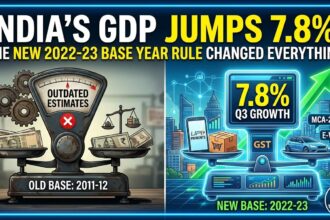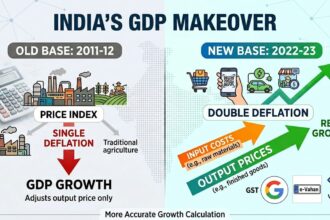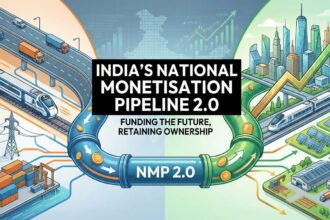At the National Conference on strengthening legal aid delivery mechanisms, Prime Minister Narendra Modi revealed a truth that is not just about legal reform but goes beyond it. PM Modi noted that the real basis of ease of living and ease of doing business is the ease of justice—a message that strongly resonates with the fact that India’s economy is growing fast, and legal disputes are becoming more complex.
What the Prime Minister said goes far beyond the technical reforms of the judiciary to a bigger idea of making justice simple, quick, and available to all people and entrepreneurs who generate the country’s economic growth.
The need for the speed and accessibility of justice has an economic growth dimension that is quite different from the past. Businesses require courts to give their decisions quickly in cases of mergers, insolvencies, and industrial disputes. It is an effect of delayed verdicts very often which go beyond the profits of a business—they involve employees, suppliers, creditors, and the overall market trust. Under the Insolvency and Bankruptcy Code (IBC), for instance, there have been numerous cases of corporate disputes that have encountered various delays due to prolonged court hearings. PM Modi’s point originates from the idea that an economic loss is the result of judicial inefficiencies at different levels.
The Prime Minister, therefore, urged the courts to expedite their work and issue their verdicts quickly not only in industrial and economic disputes but also in such cases to be able to lead the way for India’s continuous growth.
The problem is visible if one looks at the numbers. In October 2025, the total number of court cases waiting for a decision in different Indian courts was estimated to be around 53 million (5.3 crore)—which is a little over 2 % higher than that of the previous year. Most of these cases (more than 85%) are at the district courts and subordinates, while the Supreme Court alone has nearly 88,000 cases lined up.
If we talk about states, Uttar Pradesh is at the top with 11.7 million (1.17 crore) district court cases, followed by Maharashtra with 5.4 million cases and Bihar with almost 3.8 million cases. There are also quite a few cases that have lasted for several decades, as for instance, in the district and high courts, there are more than 180,000 cases that have been going on for over 30 years.
The situation is extremely difficult for commercial disputes, where the pressure, however, is most notable. Materialising court reforms, the time to dispose of commercial cases in the Mumbai courts has dramatically reduced—from almost five years in 2020 to less than a year in 2022.. Despite this, the overall national average still stands at around 626 days, which demonstrates how backlogs have not been fully resolved. According to IBC norms, an insolvency case should be closed within 330 days, but right now, it takes about 850 days on average—more than twice the target. To be exact, nearly 78% of the insolvency cases are over the time limit and most are on account of procedural bottlenecks and frequent litigations.
Yet, reforms are resulting in tangible achievements to some extent. The Jan Vishwas Act has removed the criminal nature of more than 3,400 legal provisions and has done away with more than 40,000 unnecessary compliances for businesses, making the processes less complicated and more secure from a regulatory point of view. The country has repealed over 1,500 laws that were no longer relevant in the past few years.
In the meantime, various legal aid programs – such as NALSA and the government’s Legal Aid Defence Counsel System – have done the incredible work of resolving almost 800,000 criminal cases in three years, thereby providing the most disadvantaged groups of society with the necessary support and relief. However, even then, there is still a significant gap between the number of lawsuits that have been filed and those that have been resolved.
Not only is Prime Minister Modi’s comment an insight but a clear indication of the direction of judicial and policy changes. The judiciary, in a world of an ever-changing economy that is driven by technology, investment, and innovation, has to keep up its pace as well. A justice system that is fast in its response, clear in its communication, and efficient in its work is a major enabler for India to realize her future goals. As Modi reminded the policymakers, the country’s growth story will depend not only on economic reform but also on how justice will be delivered to all fairly and in time—from the citizens to the businesses.









